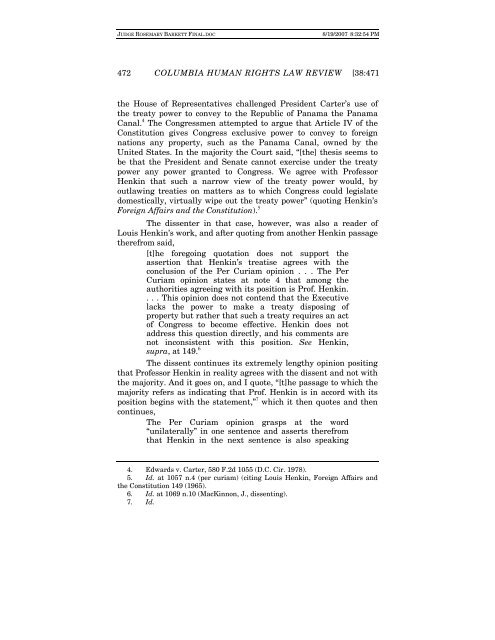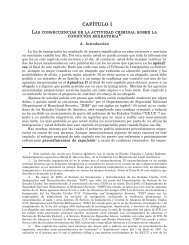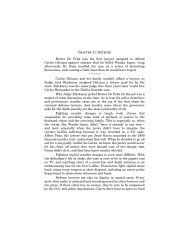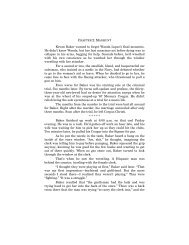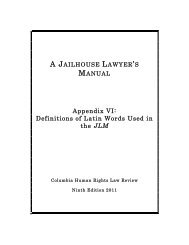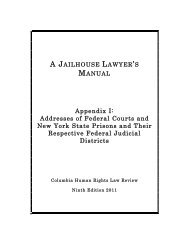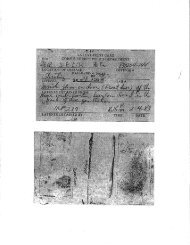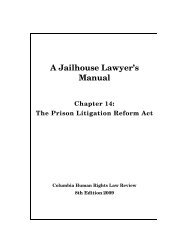Judge Rosemary Barkett Final.pdf - Columbia Law School
Judge Rosemary Barkett Final.pdf - Columbia Law School
Judge Rosemary Barkett Final.pdf - Columbia Law School
You also want an ePaper? Increase the reach of your titles
YUMPU automatically turns print PDFs into web optimized ePapers that Google loves.
JUDGE ROSEMARY BARKETT FINAL.DOC 8/19/2007 8:32:54 PM<br />
472 COLUMBIA HUMAN RIGHTS LAW REVIEW [38:471<br />
the House of Representatives challenged President Carter’s use of<br />
the treaty power to convey to the Republic of Panama the Panama<br />
Canal. 4 The Congressmen attempted to argue that Article IV of the<br />
Constitution gives Congress exclusive power to convey to foreign<br />
nations any property, such as the Panama Canal, owned by the<br />
United States. In the majority the Court said, “[the] thesis seems to<br />
be that the President and Senate cannot exercise under the treaty<br />
power any power granted to Congress. We agree with Professor<br />
Henkin that such a narrow view of the treaty power would, by<br />
outlawing treaties on matters as to which Congress could legislate<br />
domestically, virtually wipe out the treaty power” (quoting Henkin’s<br />
Foreign Affairs and the Constitution). 5<br />
The dissenter in that case, however, was also a reader of<br />
Louis Henkin’s work, and after quoting from another Henkin passage<br />
therefrom said,<br />
[t]he foregoing quotation does not support the<br />
assertion that Henkin’s treatise agrees with the<br />
conclusion of the Per Curiam opinion . . . The Per<br />
Curiam opinion states at note 4 that among the<br />
authorities agreeing with its position is Prof. Henkin.<br />
. . . This opinion does not contend that the Executive<br />
lacks the power to make a treaty disposing of<br />
property but rather that such a treaty requires an act<br />
of Congress to become effective. Henkin does not<br />
address this question directly, and his comments are<br />
not inconsistent with this position. See Henkin,<br />
supra, at 149. 6<br />
The dissent continues its extremely lengthy opinion positing<br />
that Professor Henkin in reality agrees with the dissent and not with<br />
the majority. And it goes on, and I quote, “[t]he passage to which the<br />
majority refers as indicating that Prof. Henkin is in accord with its<br />
position begins with the statement,” 7 which it then quotes and then<br />
continues,<br />
The Per Curiam opinion grasps at the word<br />
“unilaterally” in one sentence and asserts therefrom<br />
that Henkin in the next sentence is also speaking<br />
4. Edwards v. Carter, 580 F.2d 1055 (D.C. Cir. 1978).<br />
5. Id. at 1057 n.4 (per curiam) (citing Louis Henkin, Foreign Affairs and<br />
the Constitution 149 (1965).<br />
6. Id. at 1069 n.10 (MacKinnon, J., dissenting).<br />
7. Id.


